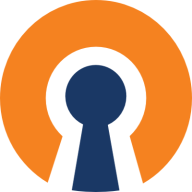

Check Point Remote Access VPN and OpenVPN Access Server Enterprise are competitors in the VPN market segment. Check Point seems to have the upper hand due to its strong integration with its firewall solutions, offering enhanced security features.
Features: Check Point Remote Access VPN offers a built-in, centrally-managed firewall, seamless integration with Active Directory, and SSL VPN capabilities. OpenVPN Access Server Enterprise provides flexible deployment options with an open-source nature, a user-friendly interface, and broad platform support.
Room for Improvement: Check Point needs to simplify configuration processes, expand Linux support, and improve automation for updates. OpenVPN requires a more user-friendly interface, efficient configuration, and better connectivity in certain regions.
Ease of Deployment and Customer Service: Check Point is often deployed in hybrid and private cloud environments, with good technical support. OpenVPN is deployed in public and private clouds, offering a simple setup, though customer service is mainly community-driven.
Pricing and ROI: Check Point is cost-effective for existing users of Check Point gateways, though it may have higher licensing costs compared to alternatives. OpenVPN offers significant savings as an open-source solution, with moderate additional costs for enterprise support.
It reduces the dependency on being physically present in the office and enhances the overall user experience, saving time and maintaining security.
In this case, everything is pre-inbuilt, allowing me to easily create new users and share their details so they can connect to Check Point VPN and access internal servers.
Since implementing Check Point Remote Access VPN, I have seen a return on investment as it saves me money and allows users to easily access internal resources from home.
Contacting the Technical Assistance Centers (TACs) initially can be difficult, but once I get in touch with the TAC team, it is easy to solve problems.
The timing of technical support does not always align with our working hours.
While the support team is generally good, it takes at least three to four days to address ticket issues.
It was very good, and I would rate it an eight.
I have not dealt with support or customer service, however, the documentation is good, and I would rate it a seven out of ten.
Currently, 130 users can connect simultaneously, and it is very reliable and efficient.
I feel confident that Check Point Remote Access VPN can scale effectively if our organization grows, as it can handle additional users and traffic.
It's not very easy to expand, and it would be beneficial if the process were simpler.
I would give OpenVPN a six out of ten for scalability, as it's usually a single user or single device.
Check Point Remote Access VPN is stable and has been reliable for my users.
Deploying these solutions requires higher technical expertise than other solutions.
Check Point Remote Access VPN could improve by automatically switching between my two ISPs when one goes down.
Check Point Remote Access VPN can be improved by having more granular options to steer traffic, like easier configurations for split tunneling, which is currently complex.
It doesn't matter if it's Windows, Apple, Mac, or Linux - they're all very easy.
OpenVPN could improve in centralized management.
The pricing, setup costs, and licensing for Check Point Remote Access VPN are a bit low compared to my previous solution.
It is competitively priced, and we have chosen it for its market leadership in the firewall space.
The pricing, setup cost, and licensing are straightforward, though the setup is a bit expensive.
My experience with pricing is excellent as the pricing is free.
The end-to-end endpoint security provided by Check Point Remote Access VPN impacts our organization by ensuring compliance and enhancing security.
We don't know what vulnerabilities exist in outside networks, so when they connect to Check Point Remote Access VPN, they enter the internal network where traffic is monitored by my firewall, which provides comprehensive threat protection and prevents users from connecting to malware.
The functionality enables secure access for remotely connecting users, which is necessary for our operations.
The most valuable features of OpenVPN are its ease of use, client familiarity, end-user familiarity, operating system integration, and price points.
What I appreciate the most about OpenVPN Access Server is that it's very easy to set up.


Remote secure access VPN is a solution that provides users with remote access to an organization’s network. The host may have VPN client software loaded or use a web-based client. The solution leverages security features like multi-factor authentication, endpoint scanning, and encryption of all data in motion.
Check Point Remote Access VPN provides individuals with protected and efficient access to a company network from anywhere. This strategy fosters collaboration and connectivity between distributed teams and offices.
Features of Check Point Remote Access VPN
Key features of the secure remote access VPN include:
The system enforces endpoint security with endpoint compliance. It monitors and verifies the security status of each endpoint and reports back to the Security Gateway. The gateway, in turn, checks the compliance level and directs the connectivity to the right resources.
Users can deploy the Remote Access VPN in one of three ways:
Remote Access VPN is centrally managed. The centralized console enables management and enforcement of policies with a single log-in.
The Remote Access VPN has a web portal that users can use to connect securely to corporate applications, such as web-based resources, file-sharing, and email. Administrators can customize the web portal to match the brand identity.
Remote Access VPN offers two choices for remote access:
The authentication features include password management, RADIUS challenge/response, CAPI software, and hardware tokens. P12 certificates, and SecurID.
The system establishes a VPN tunnel on demand. It also re-arranges connections when roaming. The tunnel can automatically tear down when the user is on the corporate LAN.
There are several connection features, such as Hotspot detection, office mode IP, split tunneling, and automatic fallback to HTTPS.
Benefits of Check Point Remote Access VPN
One of the key advantages of Remote Access VPN is that it provides remote workers with a secure way to connect to a corporate network from any device, including their personal devices. The data encryption in transit enables them to securely access the resources they need for their tasks.
It also provides IT support and technicians with a faster way to troubleshoot software issues. In the case of a ticket, IT doesn’t need to go to the server location to fix the problem but can troubleshoot it remotely.
A remote secure access VPN is also an affordable alternative for small and medium-sized businesses, without requiring expensive infrastructure.
Reviews from Real Users
A Global IT Network and Security Service Senior Specialist at a manufacturing company who uses Check Point Remote Access VPN says, "I found the MEP feature the most valuable. This has improved users' latency allowing the users to connect to the nearest Azure Check Point VM."
"Organizations that already use the Check Point NGFW Solution do not require any additional hardware, which makes the implementation straightforward and reduces the time to go live," explains Basil D., Senior Manager at a financial services firm.
Manuel B., a Voice and data infrastructure specialist at a tech services company, says that "The IPSec VPN, Mobile Access, and Identity Awareness are three of the blades with which we have been working with since the pandemic. This has given us great mobility, making our network more dynamic."
OpenVPN Access Server Enterprise provides secure, scalable remote access with strong encryption and cross-platform compatibility, leveraging open-source flexibility for cost-effectiveness. It's ideal for connecting remote workers, maintaining privacy, and securing network communications.
OpenVPN Access Server Enterprise is renowned for its ease of setup and adaptability, supporting Linux and different operating systems, which ensures robust security and seamless integration across network scenarios. With features like two-factor authentication and customizable installers, it emphasizes privacy and remote connectivity. While it offers robust documentation and community support, there are challenges with user management due to the lack of a simple GUI. Users note stability issues under heavy traffic, and improvements in security features and configuration automation are desired. Despite these areas for enhancement, it remains a reliable choice for secure remote access.
What are the key features?In industries such as finance and healthcare, OpenVPN Access Server Enterprise secures sensitive data while enabling remote access across LANs and VPCs. It's utilized for encrypted traffic protection, facilitating site-to-site VPNs, and connecting mobile workers securely, thus maintaining data integrity in interoffice communications and IoT platforms.
We monitor all Enterprise Infrastructure VPN reviews to prevent fraudulent reviews and keep review quality high. We do not post reviews by company employees or direct competitors. We validate each review for authenticity via cross-reference with LinkedIn, and personal follow-up with the reviewer when necessary.